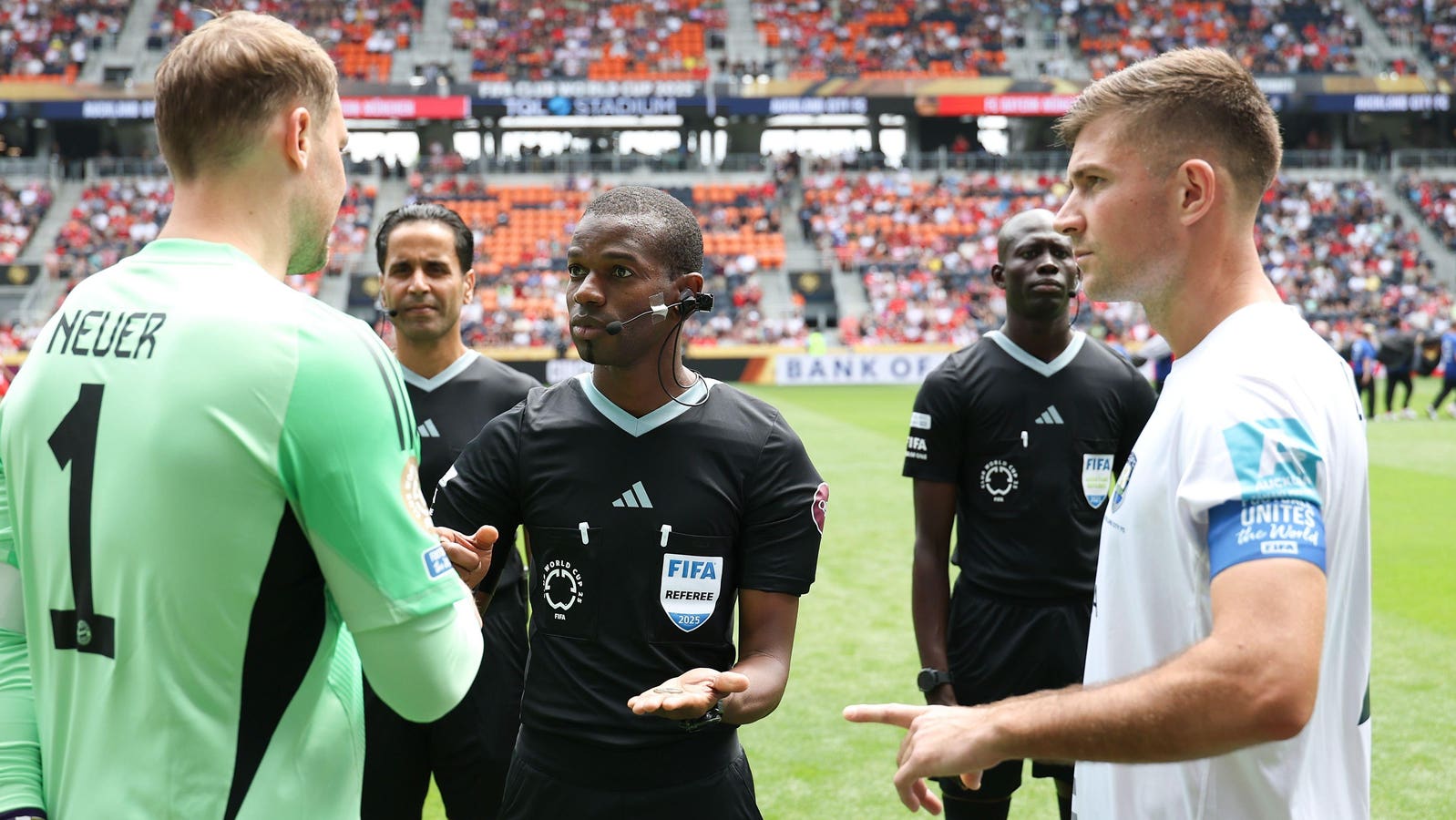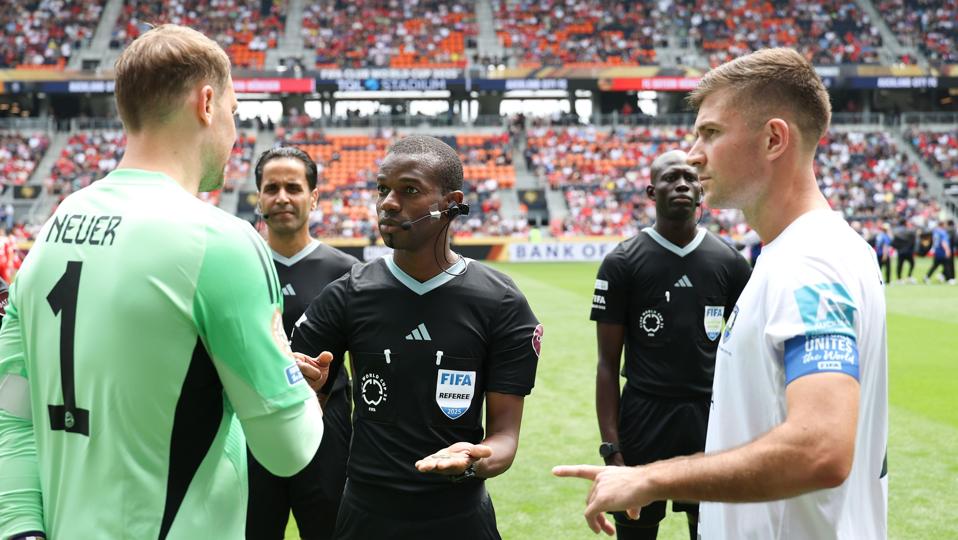CINCINNATI, OHIO – JUNE 15: Referee Issa Sy tosses the coin with Manuel Neuer of FC Bayern Munich … More
Another heavy defeat will be expected for Auckland City FC when it faces Benfica in its second match of the FIFA Club World Cup on Friday afternoon, which will likely lead to more questions around the New Zealand club’s inclusion in the tournament.
Auckland City is the sole representative from the Oceania Football Confederation (OFC) at the Club World Cup, and is the only amateur team taking part.
Its 10-0 loss to German Bundesliga giants Bayern Munich in the opening game of Group C led many to question its presence at the tournament, and whether a team from the OFC deserves a place at this newly expanded Club World Cup.
Auckland City’s participation does raise numerous issues from various angles; sporting and economic. These include issues of inequality in a global game, FIFA’s claims that the Club World Cup involves the world’s best teams, and the organisation of soccer in the Oceania region, where its strongest nation, Australia, moved to the Asian confederation in 2006.
There should be no doubt, though, that Auckland City fully deserves its place at the Club World Cup. It could even be argued that it deserves its place more than any other team in its group.
CINCINNATI, OHIO – JUNE 15: Jamal Musiala #42 of FC Bayern Munchen talks to Jerson Lagos #17 of … More
Auckland City is the reigning champion of the New Zealand National League and met the qualifying criteria in the most convincing fashion.
It won all three of the OFC Champions League tournaments played in the qualifying period of 2021 to 2024, and also won the most recent edition for good measure, defeating Hekari United of Papua New Guinea 2-0 in the final in April this year.
This means the club has won the last four consecutive editions of the region’s version of the Champions League, and has now won 13 of the 24 editions of Oceania’s continental competition.
None of the other teams in Auckland City’s group qualified by winning their equivalent competition.
Neither Bayern Munich nor Benfica won the UEFA Champions League in the qualification period, and Boca Juniors has not won the South American version of the Champions League, the Copa Libertadores, since 2007.
Though these teams from Europe and South America are far richer than Auckland City and are made up entirely of professional players, many of whom are or have been among the best in international soccer, none of them qualified for the Club World Cup by winning a trophy. Auckland City did.
Bayern, Benfica, and Boca all qualified via the rankings system, which is used to top up the tournament to 32 teams once all the teams qualifying via the main route of winning their confederation’s top club competition have been decided.
The OFC only gets one spot at the Club World Cup, but it’s right that it gets a spot, regardless of the level of the team that qualifies.
If such a tournament were to introduce a more artificial qualification method to accommodate all the top teams in the world, it would be heavily biased towards Europe and, to a lesser extent, South America.
As a result, it would lose the “world” aspect of the competition, which is the whole point of it in the first place.
ORLANDO, FLORIDA – JUNE 19: Head Coach Paul Posa of Auckland City FC speaks during the … More
One-sided results are also part of sport and are seen at all levels, including when professional teams play professional teams in the soccer’s biggest tournaments. Both Liverpool and Real Madrid have recorded 8-0 wins in the UEFA Champions League’s lucrative group stage.
The Copa Libertadores has seen scorelines of 9-0 and 11-2 in group stage matches, while the English Premier League—often held up as the pinnacle of domestic club football—has witnessed three 9-0 scorelines.
There are some potentially negative knock-on effects regionally from Auckland City’s participation. The prize money the club will receive, which is huge compared to prize money domestically and in the OFC, could further add to its dominance in New Zealand and Oceania, and skew the balance domestically and regionally.
It also raises awareness of the development and organisation of the game in Oceania, and the fact that New Zealand does have two professional teams—Auckland FC and Wellington Phoenix—but both play in the Australian A-League, and are therefore part of the Asian confederation.
However, the principle of having a Club World Cup qualifier for the region, even if it’s only one team, is right and proper. If such a tournament wants to represent the world, then it needs to include the world’s teams.
There might be the occasional one-sided result, and the distribution of FIFA’s money beyond the participating teams needs to be better to avoid further regional disruption, but starting from a position of inclusivity is the right thing to do.
Auckland City, unlike Bayern, Benfica, and Boca, is the champion of its region and fully deserves its place at the Club World Cup.




